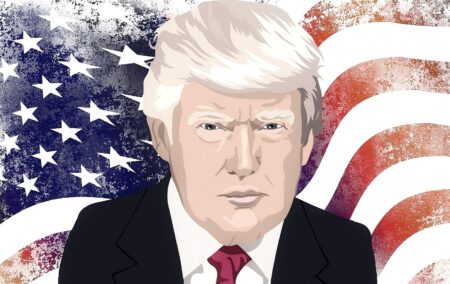A little under a month ago, the Financial Times published a piece by Simon Kuper, “Musk, Thiel and the shadow of apartheid South Africa” (19 September), containing misconceptions that I believed were serious enough to warrant challenging. The following is my response to Kuper, which was submitted to, though not published, by the FT.
A fundamental contradiction lies at the heart of Simon Kuper’s argument (“Musk, Thiel and the shadow of apartheid South Africa”): Kuper fixates on supposed similarities between apartheid South Africa and the US of today when it is the differences that are far more striking.
He writes: “Southern Africa under apartheid offered an extreme version of some of the main themes of American life today” and identifies inequality and violence as features that apartheid South Africa and the US of today have in common.
He also identifies three features which he claims white South Africans who grew up under apartheid have in common with conservatives in the United States today: not caring about inequality; fearing violence – specifically violence by black people against white people; and “contempt for government”.
However, he misses the central point that the defining feature of the apartheid system was its denial of fundamental human rights and freedoms.
Among the freedoms it restricted were freedom of movement, of association, of trade, of peaceful assembly, and of speech. Among the rights it violated were the right to own property, the right to a fair trial, and the right to equal treatment independent of one’s race.
It is far-fetched indeed to suggest that the US curtails rights and freedoms in a way comparable to the apartheid government. It is even more outlandish to suggest that the four men he singles out in his piece would wish to curtail rights and move the US closer to being some sort of apartheid state redux.
Indeed, Kuper himself associates his four targets with libertarianism. Libertarians, the Stanford Encyclopedia of Philosophy informs us, “take individual freedom as the paramount political value and understand coercion to be the antithesis of that freedom.” The apartheid state was nothing if not coercive. Emulating it in any way would therefore be anathema to libertarians.
Regarding the first of his three assertions, Kuper writes: “To whites of a certain mindset, this [South African] inequality wasn’t due to apartheid” and goes on to imply that this is a belief that Peter Thiel held or continues to hold.
While I cannot speak for Mr Thiel, I doubt very much that he believes this. No rational South African believes inequality is anything less than a consequence of apartheid, now coupled with post-1994 policy insufficiency in overcoming the apartheid legacy. South Africans across the board expressly want all institutions, state and private, to be actively engaged in advancing post-racialist prosperity and wellbeing for all.
Kuper’s second confident suggestion – that “(the) white South African nightmare in the 1980s, hanging over everything, was that one day Black people would rise up and massacre whites” – might have been true for some, but it was not so for the sane majority by the late 1980s. What filled this category with dread was that, without fundamental reform (starting with the minimum; one person one vote), the civil war that was ongoing would get much worse. The far more numerous victims of the struggle would not be those responsible for deferring the reform and thus sustaining the conflict, but the black majority so deprived.
As for Kuper’s invoking Musk’s 2023 fear about “genocide of white people in South Africa”, nobody who expects to be taken seriously in SA uses “genocide” in the same sentence as “white people”, understanding that – in 2024, just as in 1984 − black people are far more exposed to violent crime than white people.
That brings us to Kuper’s third point: “The final commonality between many white South Africans who experienced the end of apartheid and today’s American right: a contempt for government.” This gets things exactly backward.
The apartheid government was regarded with far less contempt by many white South Africans than it deserved. On the other hand, many black people embraced a form of “anti-government libertarianism” in their rejection of apartheid when they burned their pass books, broke segregation laws and participated in rent boycotts. The streak of rebelliousness continues today and is embraced by fed-up South Africans of all races.
Kuper writes: “The apartheid regime and then the African National Congress left millions of South Africans without electricity, dignity, safety or decent schooling. That experience can encourage anti-government libertarianism.”
Yes, it can, and it should. Overbearing governments deserve some pushback. On the other hand, government underperformance can also prompt a signal alteration via the ballot box. The devastating impact of apartheid, and compounding policy failures since, is most notably the origin not of white right-wing sentiment, but rather – as South Africa’s May 2024 election testifies – a rethink among voters tired of the suffering they have endured after being “left … without electricity, dignity, safety or decent schooling”, most of whom are black.
Perhaps, after all, Trumpism is best understood on American terms.
If you like what you have just read, support the Daily Friend

